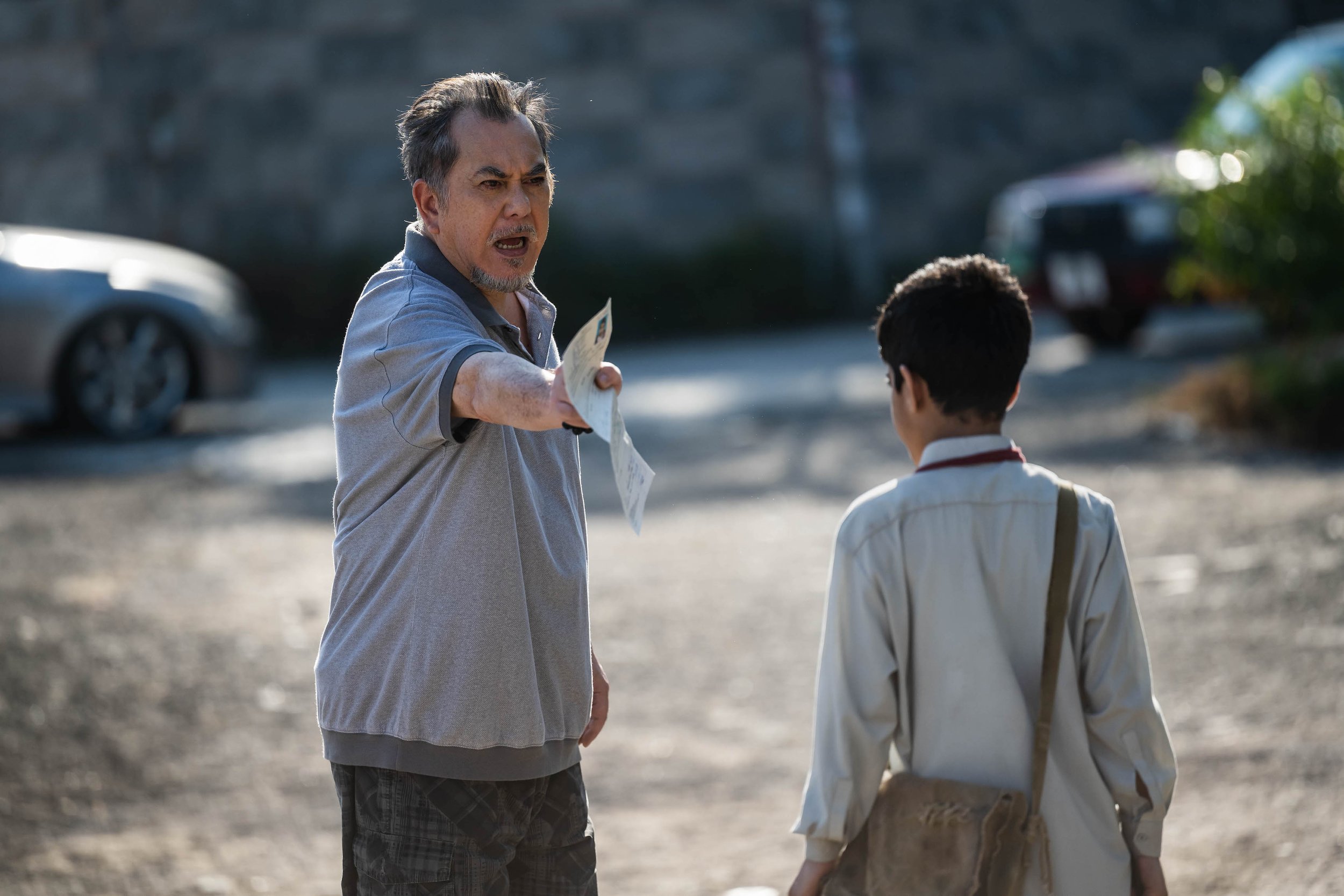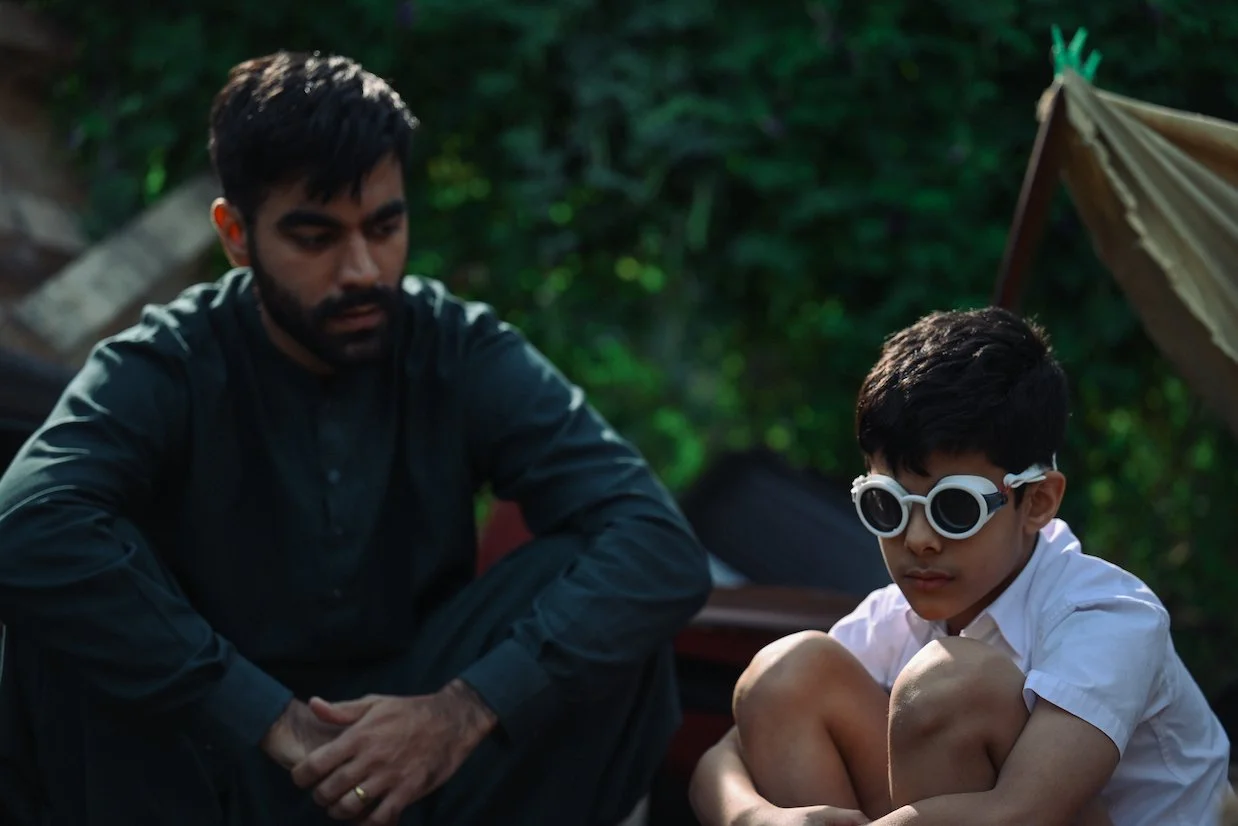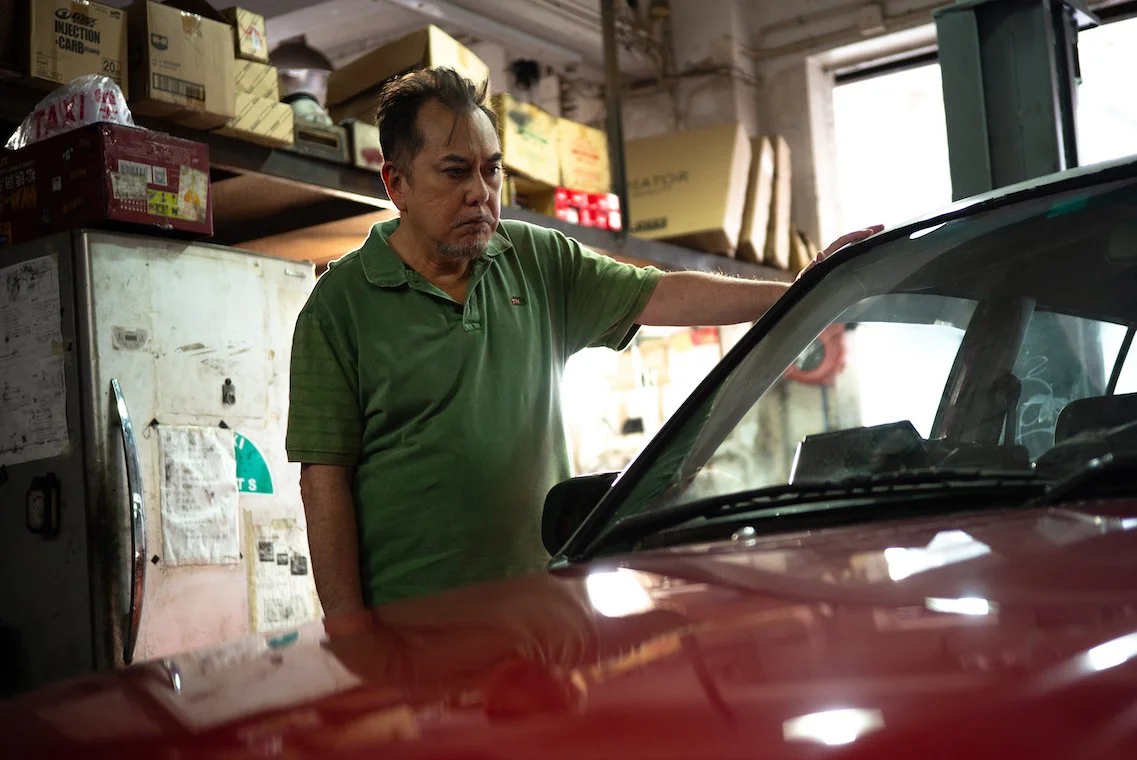Far from ‘Sunny’
Debuting director Ray Lau Kok-rui tackles Hong Kong’s dirty little secret: It has a race problem. Welcome to the real world.
The Sunny Side of the STreet
Director: Ray Lau • Writer: Ray Lau
Starring: Anthony Wong, Sahal Zaman, Endy Chow, Kiranjeet Gill, Inderjeet Singh
Hong Kong • 1hr 52mins
Opens Hong Kong March 30 • IIB
Grade: B
Picture this: A white cabbie gets into a road rage shouting match with a Black guy over a minor fender bender. Cops are summoned to the scene and though the white cabbie is unequivocally in the wrong, the cops pooh-pooh the Black guy’s complaint and send the cabbie on his way. On top of that, the Black guy’s told that if he doesn’t simmer down he’s going to wind up in cuffs.
This is the stuff of headline news from the United States over the last few years. It’s nothing new, but since COVID, and George Floyd, and oodles of white supremacist idiocy now getting caught and shared on socials, it’s more in your face. And you can whine about the States all you like, but this kind of discrimination isn’t unique to Americans – or the West. Which is the jumping off point for Ray Lau Kwok-rui’s first feature, The Sunny Side of the Street | 白日青春, a four-time Hong Kong Film Award nominee and a Golden Horse winner in 2022 for new director and screenplay. Swap out the white cabbie for a “local” Hongkonger and the Black guy for a Pakistani refugee awaiting news on his relocation and/or deportation and the scene plays out exactly the same way. The scene is about power and privilege as much as it is about race, and the biggest stumbling block to Lau really saying something urgent is the fact that he pulls his punches by redeeming the cabbie, Chan Bak-yat, played by one of the city’s great DGAF actors, Anthony Wong Chau-sang (also a Golden Horse winner). Still, Sunny Side is a long overdue, gently thought-provoking soft ball lobbed at Hongkongers under the mistaken impression they don’t have race relations problems (looking at you, TVB), or social systems stacked against minorities.
Boozing, belligerent Yat gets into it with Ahmed (Hong Kong-born Inderjeet Singh, Shock Wave 2 as – wait for it – a terrorist) on his way home from his cop son Hong’s wedding. He wasn’t invited, and Hong (Endy Chow Kwok-yin, One Second Champion) prefers to keep his distance from his father, which puts Yat in a mood. So when he runs into Ahmed, they nearly come to blows. Ahmed isn’t totally innocent in the street beef, but he’s frustrated too: He’s been waiting years for a decision on whether he and his wife, Fatimah (Kiranjeet Gill), and 10-year-old son Hassan (Sahal Zaman) can move to Canada. They’re in limbo in Hong Kong, with no status and no right to work. When Ahmed and Yat get into a second time, the result is a car wreck that leaves Ahmed dead. It’s Ahmed’s fault no matter what really happened, Yat faces no charges – because Pakistani refugee versus Hongkonger – and goes home for a beer.
But of course, he sees the impact Ahmed’s absence has on Hassan, and before you know it, Yat, himself ironically a refugee from China, starts looking out for Hassan, especially after he comes into possession of a police firearm and gets involved with unsavoury gang types. An uneasy surrogate father-son relationship between the two develops, mostly in the city’s dark corners at night, stressing Hassan’s invisibilty, much to the chagrin of Hong. Their bond is shaken when Hassan figures out how his dad died.
Lau steers The Sunny Side of the Street down a bleaker path than the recent rash of low-key local dramas (Lost Love, The Narrow Road) have gone; Sunny Side has no FFFI funding, so he likely had more wiggle room for painting a not-so-good Hong Kong story – AKA reality. But he also steers it down a more family drama path, setting up Hassan as a do-over for Yat; a way to make right what he made wrong with Hong. Sometimes it works, sometimes it doesn’t. Chow is functional as the slightly bitter, estranged son, a young man who’s made his way in life without guidance from his dad. He resents the attention Yat decides to heap on Hassan out of guilt, and it’s easy to see why. But the character is also tinged with pop-psychology, whose anger we could see coming a mile away. He’s a cop. How does he reconcile his job with his dad’s disregard of his choices? Is it an issue? We never find out.
Unsurprisingly, Hassan is the film’s most compelling figure, and more time spent investigating the impact he has on Yat would have made Yat’s redemption feel more earned, even if it makes the closing moments no less ludicrous. That’s not such a big deal; the ending is symbolic as much as it is plot, but it would be nice to know what Hassan is really thinking and feeling. Zaman is up to the task, and he keeps pace with Wong’s biased curmudgeon awakening without breaking a sweat. He could have handled much more than he’s given, and not providing him – and the film – with the room to dive deeper into race relations, refugee stigma, the double standards, and a system that keeps the marginalised marginalised is a missed opportunity. It does represent an evolution: Chan Kin-long’s Hand Rolled Cigarette at least admitted South Asian people live here, work here and speak the language, and Oliver Chan’s Still Human (also starring Wong as a grump forging a friendship with a brown person) aimed to humanise invaluable domestic workers whose humanity is often ignored, but both avoid dealing directly with discrimination. Lau has the balls the state the obvious, but he also whispers when he should be using a bullhorn. — DEK



